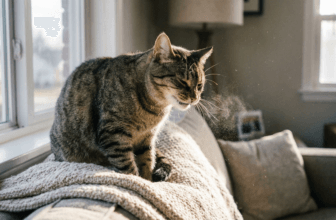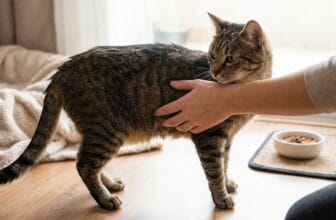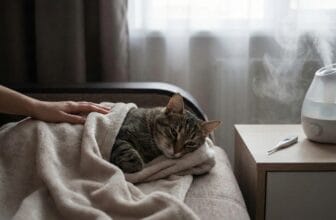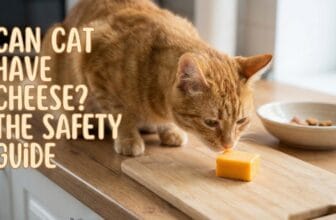
Table of Contents
Cats are often admired for their grace, independence, and enigmatic behavior. However, if you’ve ever wondered, why my cat is drooling, it can be both surprising and concerning. While occasional drooling might not be a cause for alarm, persistent or excessive drooling could signal an underlying health issue. As a cat owner, understanding the reasons behind this behavior is essential to ensuring your pet’s well-being. Whether it’s a harmless quirk or something more serious, knowing why my cat is drooling can help you take the right steps to keep your feline friend healthy and happy..
In this comprehensive guide, we’ll explore the various reasons why your cat might be drooling, from harmless explanations like contentment to more serious conditions such as dental disease or poisoning. You’ll also learn when it’s time to consult a veterinarian and how to keep your cat healthy. By the end of this article, you’ll have a clear understanding of what to do if your cat starts drooling and how to address potential concerns.
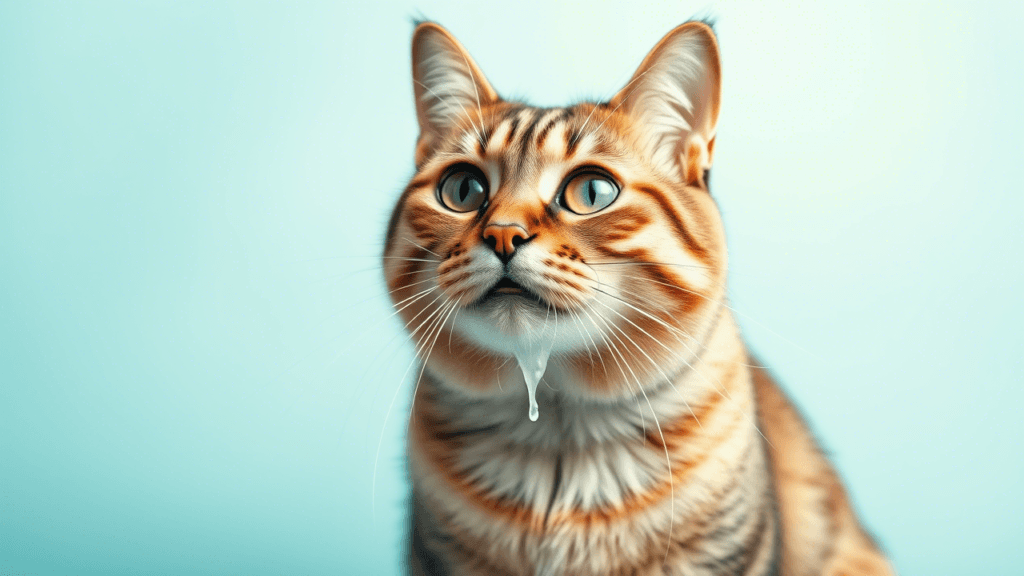
1. What Is Normal Drooling in Cats?
Drooling in cats isn’t as common as it is in dogs, but it can happen under certain circumstances. For example, some cats drool when they’re extremely relaxed or happy, such as during a grooming session or while being petted. This type of drooling is usually harmless and doesn’t require any intervention.
However, if your cat is drooling excessively or showing other symptoms like lethargy, loss of appetite, or bad breath, it’s time to investigate further. Understanding the difference between normal and abnormal drooling is the first step in addressing the issue.
2. Common Causes of Drooling in Cats
2.1. Dental and Oral Health Issues
Dental problems are one of the most common reasons for drooling in cats. Conditions like gingivitis, periodontal disease, or tooth abscesses can cause pain and inflammation, leading to excessive drooling. Cats are also prone to oral tumors, which can irritate the mouth and trigger drooling.
- Symptoms to Watch For: Bad breath, difficulty eating, pawing at the mouth, or visible redness in the gums.
- What to Do: Regular dental check-ups and cleanings can help prevent these issues. If you suspect a dental problem, consult your vet immediately.
2.2. Foreign Objects in the Mouth
Cats are curious creatures and may chew on objects that can get stuck in their mouths. Items like string, small toys, or even bones can cause irritation or injury, leading to drooling.
- Symptoms to Watch For: Pawing at the mouth, gagging, or refusing to eat.
- What to Do: Gently inspect your cat’s mouth if possible, but avoid causing further injury. Seek veterinary assistance if you suspect a foreign object.
2.3. Poisoning or Toxin Exposure
Cats can drool excessively if they’ve ingested something toxic, such as certain plants, chemicals, or human medications. Poisoning is a serious condition that requires immediate attention.
- Symptoms to Watch For: Vomiting, diarrhea, lethargy, or seizures.
- What to Do: Contact your vet or an emergency animal clinic right away. Provide details about what your cat may have ingested.

2.4. Stress or Anxiety
Just like humans, cats can experience stress or anxiety, which may cause drooling. Changes in their environment, such as moving to a new home or the introduction of a new pet, can trigger this response.
- Symptoms to Watch For: Hiding, excessive grooming, or changes in behavior.
- What to Do: Create a calm and safe space for your cat. Consult your vet if the drooling persists or worsens.
2.5. Upper Respiratory Infections
Upper respiratory infections, often caused by viruses like feline herpesvirus or calicivirus, can lead to drooling. These infections can cause nasal discharge, which may lead to excessive salivation as your cat tries to clear its airways.
- Symptoms to Watch For: Sneezing, coughing, or nasal discharge.
- What to Do: Keep your cat comfortable and hydrated. Consult your vet for appropriate treatment.
3. When to See a Vet
While some causes of drooling are minor, others require prompt veterinary attention. Here are some signs that it’s time to consult a professional:
- Persistent drooling that lasts more than a day.
- Difficulty eating or drinking.
- Visible pain or discomfort.
- Other symptoms like vomiting, diarrhea, or lethargy.
Early intervention can prevent complications and ensure your cat receives the care it needs.
4. Preventing Drooling in Cats
Prevention is always better than cure. Here are some tips to keep your cat healthy and reduce the risk of drooling:
- Regular Dental Care: Brush your cat’s teeth regularly and schedule annual dental check-ups.
- Safe Environment: Keep toxic substances and small objects out of reach.
- Stress Management: Provide a stable and comfortable environment for your cat.
- Balanced Diet: Ensure your cat is eating a nutritious diet to support overall health.
Conclusion
Drooling in cats can be a sign of various conditions, ranging from harmless to serious. By understanding the potential causes and knowing when to seek veterinary care, you can ensure your feline friend stays healthy and happy. Regular check-ups, a safe environment, and attentive care are key to preventing issues that could lead to drooling.
If you notice your cat drooling excessively or showing other concerning symptoms, don’t hesitate to consult your vet. Your prompt action could make all the difference in your cat’s health.
Call-to-Action: Have you experienced drooling in your cat? Share your story in the comments below or reach out to us for more advice. Don’t forget to subscribe to our newsletter for more pet care tips!
FAQ : why my cat is drooling
Why is my cat drooling while purring?
Drooling while purring is often a sign of contentment. Some cats drool when they’re extremely relaxed or happy, such as during a petting session. This is usually harmless and nothing to worry about.
Can stress cause my cat to drool?
Yes, stress or anxiety can cause drooling in cats. Changes in their environment, such as moving or introducing a new pet, can trigger this response. Providing a calm and safe space can help alleviate stress-related drooling.
Is drooling a sign of poisoning in cats?
Yes, drooling can be a sign of poisoning, especially if accompanied by symptoms like vomiting, diarrhea, or lethargy. If you suspect your cat has ingested something toxic, seek veterinary care immediately.
How can I tell if my cat’s drooling is due to dental issues?
Dental issues often cause additional symptoms like bad breath, difficulty eating, or pawing at the mouth. If you notice these signs along with drooling, consult your vet for a dental check-up.
Should I be concerned if my cat drools occasionally?
Occasional drooling, especially during moments of relaxation, is usually not a cause for concern. However, if the drooling is persistent or accompanied by other symptoms, it’s best to consult your vet.
Can upper respiratory infections cause drooling in cats?
Yes, upper respiratory infections can lead to drooling due to nasal discharge and mouth irritation. If your cat is sneezing, coughing, or has nasal discharge, consult your vet for treatment.
What should I do if my cat is drooling excessively?
Excessive drooling, especially if accompanied by other symptoms, requires prompt veterinary attention. Contact your vet to determine the underlying cause and appropriate treatment.



